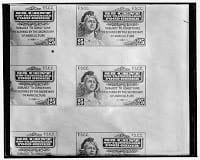The gifts just keep coming. I have read every book by Brene Brown at least once and I’ve compiled pages and pages of handwritten notes, written down quotes, and had some of the most fascinating conversations thanks to her work. Her TED talks inspire me endlessly and often, when I go back and re-read parts of her books, I discover things I hadn’t noticed before. She is definitely on the short list of women whose work impact my life every day, who have changed how I parent and learn and make my way through the world. (It’s a pretty awesome list, including the likes of Gloria Steinem and Maya Angelou).
My most recent revelation thanks to her latest book, Rising Strong, comes as a result of digging a little deeper into the layers of my life. In one part of the book she writes about people who identify themselves as ‘helpers,’ and notes that the trap of using that label to build yourself up is that it becomes hard to be the one who asks for help. I underlined that passage and made notes on a separate piece of paper because that message resonated so deeply with me. For most of my life, I found control and self-worth because I was able to help other people, lift them up and provide emotional and logistical support. Well, to be honest, I didn’t often provide emotional support until I was a lot older. “Fixing” things was a great way for me to feel as though I was being useful and helpful and it kept me from having to feel the pain of others, to truly empathize.
I was in my thirties before I learned about the concept of holding space for others. It took a lot of practice and a willingness to sit with discomfort for me to not immediately leap to problem-solving and balm-offering when I saw loved ones suffering. I am still practicing acknowledging and sitting with a stranger’s pain without rising to the challenge of making things better in some physical, tangible way. Dr. Brown is absolutely right when she says that tying my own self-worth to the fact that I’m a helper means that if I need help, my self-worth takes a big hit.
I will admit, however, to some amount of patting myself on the back when I absorbed that portion of the book. About ten years ago I slammed up against a wall of depression that stopped me in my tracks and if I was going to be able to move forward, literally continue to exist on the face of the planet, I had to start asking for help. It wasn’t pretty, and it wasn’t easy, but I was lucky to have some pretty tremendous people in my life who were willing to support me. I swallowed my pride shame (I think they might be the same thing, or at least two sides of the same coin) and accepted childcare, meals, help around the house. I learned to get better at saying no to helping others in every single situation where I was asked to help and, over time, I began to warm to the idea that I was not an island. So when I read her words about letting yourself be vulnerable enough to ask for help and accept it, I nodded my head and congratulated myself on having learned to do that.
I should have known better. (Remember the pride/shame thing?)
The universe has a way of smacking me upside the head when I’m feeling a little too smug.
Literally one day after I scratched my notes on yellow lined paper, I was tested. I was feeling good, preparing to get away with Bubba for a long weekend of fun, and I got a phone call that rocked me, that threw me right back into the space I had spent so many years cultivating. I was needed. My problem-solving skills, my particular calm-in-a-crisis, my physical presence was requested, nee, necessary. I spent several hours on the phone working out logistics, asking other people for help and trying to design an airtight plan so that I could keep my plans with Bubba. And while this is my space, my forte, my wheelhouse, I couldn’t help but lose it once everything was in place and things were going to be okay.
What is this about? I wondered. I had averted disaster, well, helped to avert it. Well, asked for help to avert it. Wasn’t this what I was feeling good about yesterday? My ability to ask for help so that I don’t shoulder the burden alone? That’s the goal, right? I had done it. Why was I feeling so awful?
Most of my personal revelations come about when I walk the dog. This one was no exception. It hit me so hard I’m surprised I didn’t fall over. I am pretty sure I made some sort of whimpering noise when it hit me, but I did manage to stay on my feet and I don’t think the dog even noticed.
I have gotten good at asking for logistical help. That much is true.
What I haven’t yet learned how to do is to ask for or accept help holding my pain. I have no idea how to open up and let my pain out into the world so that I don’t have to keep it all myself. I am good at writing about it (distance, anyone?) and sharing my story, but if I am in the room with someone and I am really hurting, I don’t know how to accept empathy without feeling shame.
More work to do.




